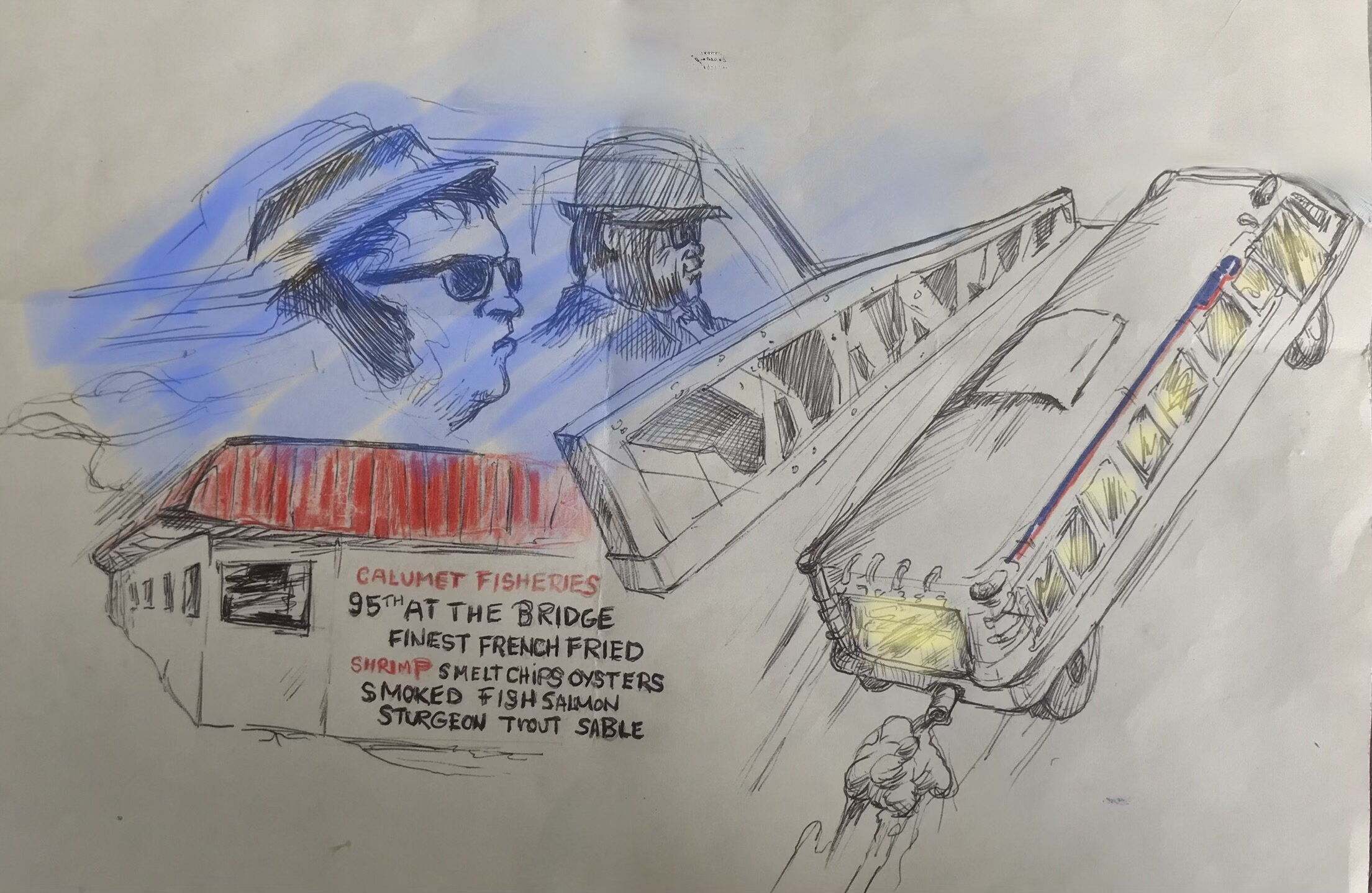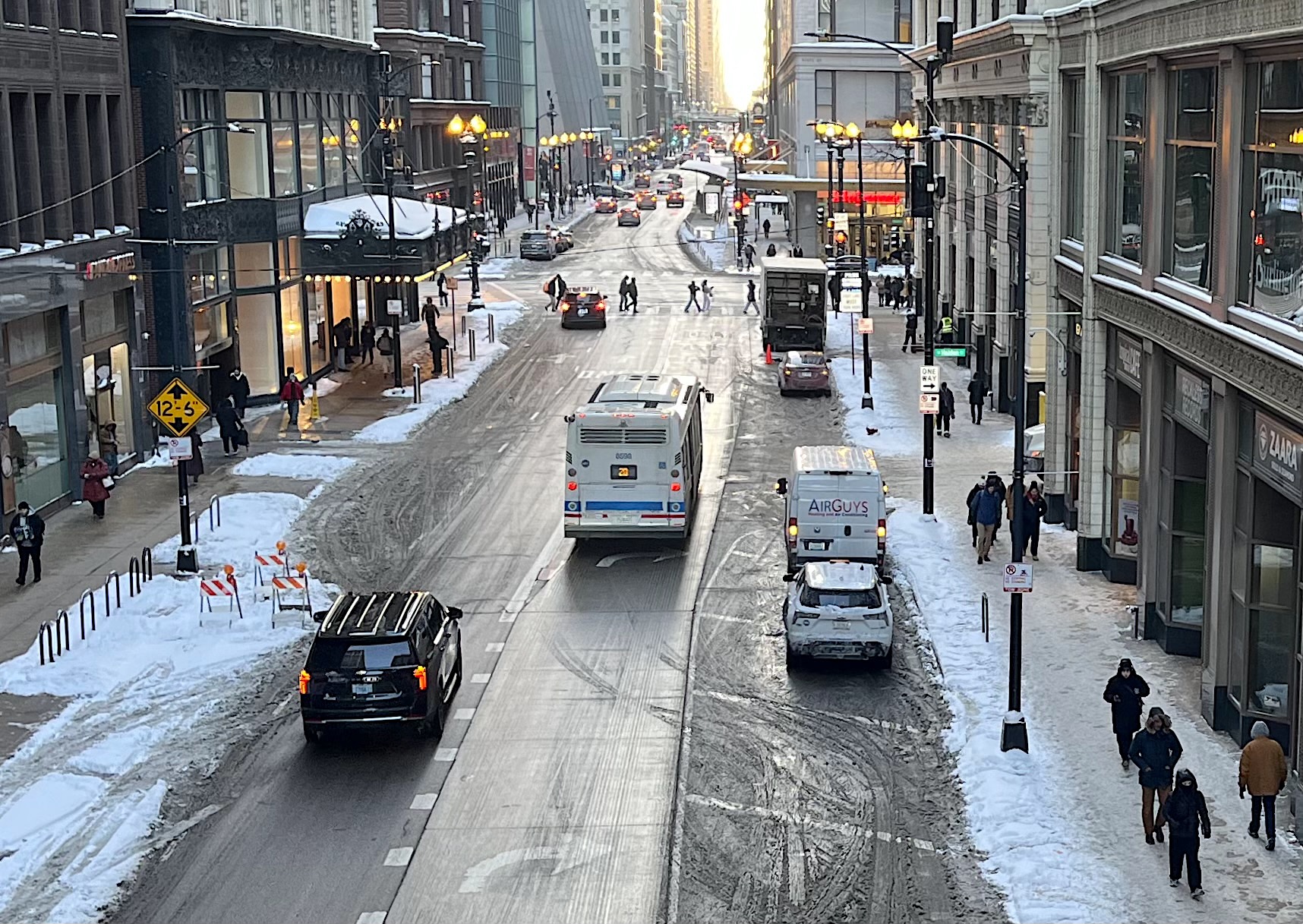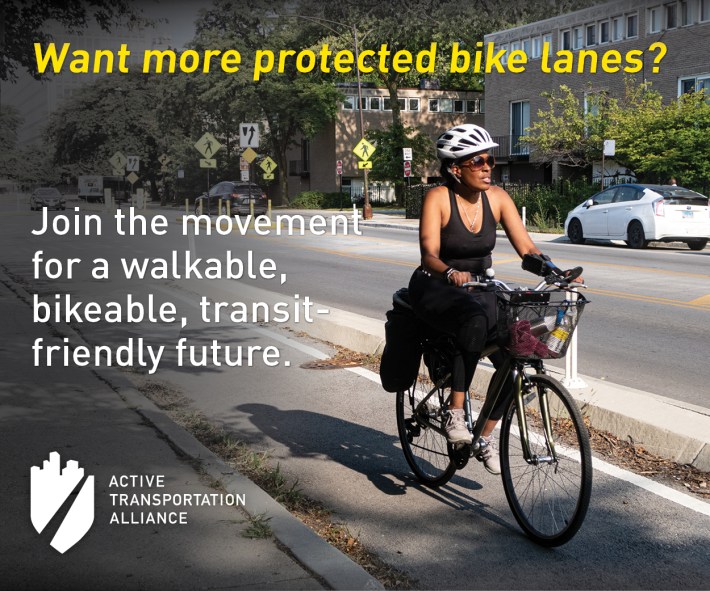
Read the Tribune editorial here.
Read RTA Board Chair Kirk Dillard's response here.
In recent years, the Chicago Tribune's transportation coverage has been very solid, thanks to reporter Sarah Freishtat, who left the paper in March. But when the paper's editorial board opines about walk/bike/transit and traffic safety issues, skepticism is warranted. Here are few recent examples of their dubious, windshield-POV claims that Streetsblog had to debunk, with links to our rebuttals.
• "A broadside against the plans for North DuSable Lake Shore Drive, but cars have to go somewhere."
• They asserted that the Milwaukee Avenue bike lanes, installed in 1998, when new Ald. Anthony Quezada (35th) was two years old, can be blamed for recent Kennedy Expressway-rehab-related street congestion.
• "[Suburban Metra] fares increased last year." (Not really.)
• "New York’s congestion tax is no model for Chicago."
• There's no "legitimate proof that [traffic cameras are] improving safety."
It's certainly necessary to shake a few grains of salt on the Tribune's recent editorial implying that the looming $770 million Chicagoland transit budget gap may actually be a mirage. "Chicago’s transit agencies want you to panic," one of the board members typed for the headline, possibly from the back seat of an Uber stuck in a NDLSD traffic jam. "They don’t explain the whole truth."

In brief, if the State Legislature doesn't allocate more funding for public transportation by the end of this month, when federal COVID-19 subsidies run out in 2026, the result will be austerity measures requiring brutal service cuts. According to the Regional Transportation Authority, which oversees the CTA, Metra, and Pace, train and bus runs could be cut by up to 40 percent, and almost 3,000 transit jobs would be lost. We're talking about even longer wait times, drastically reduced or eliminated early morning, late night, and weekend service, and a massive blow to the region's economy.
But the Tribune editorial board's not convinced we actually have an emergency on our hands. They use disparaging language to describe the RTA's efforts to sound the alarm on what the editorial snottily calls "the so-called fiscal cliff." Besides the headline, other condescending wording in the piece includes "panicked," "frantically," "panic stoking," and "begging legislators for money."
Granted, the editorial makes a few valid points. For example they're correct that the 5.5 mile Red Line Extension project has an exorbitant per-mile cost at $5.7 billion total, a number confirmed by a CTA spokesperson today. But it certainly doesn't help the board's already questionable credibility on transit matters that early on this editorial states that the extension currently has a $5.1 billion price tag, but later it puts that at $5.75 billion.
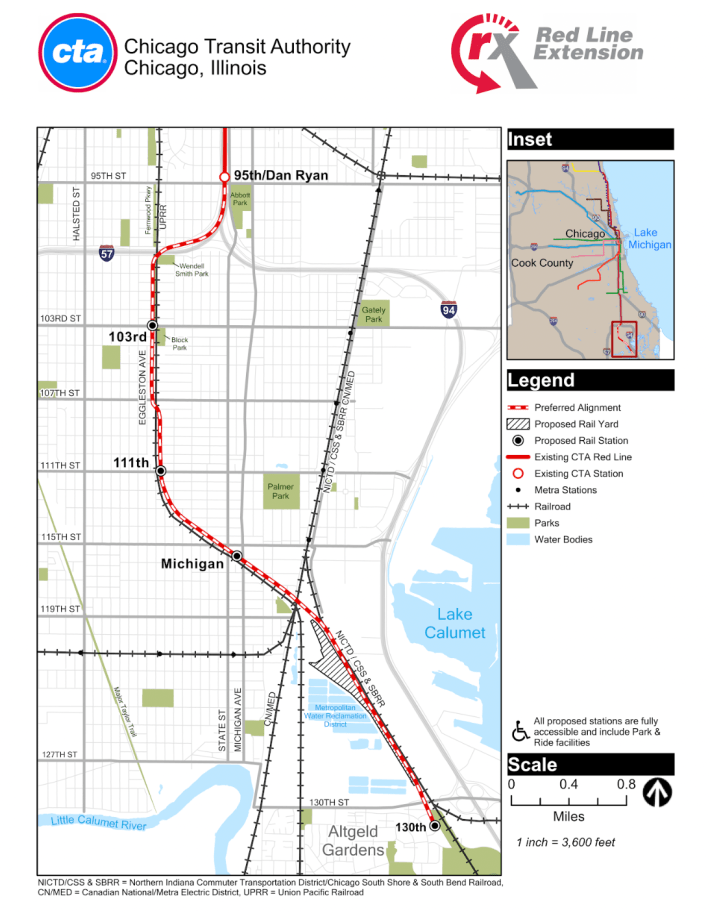
The editorial board also says some legitimate stuff about the generally subpar state of local transit infrastructure, partly due to deferred maintenance, and bus/train frequency and punctuality. "The CTA has said it will increase service this spring on some lines, but few Chicagoans think there are enough reliable trains," they write. "It's crazy to extend a system when the existing system is in such disrepair." Sure, even some transit advocates think the RLE is a bad idea.
The Tribune also cites strategies that could benefit American public transportation from a report published last December by McKinsey & Company consulting firm, "Finding a route to fiscal stability for US transit agencies." Thinking locally, the Trib editorial recommends making train and bus service better align with post-COVID travel habits, building transit-oriented housing on agency-owned land, selling off unused office space, and other valid ideas.
But one key detail the Tribune fails to mention is that Chicago-area transit isn't simply facing a cash crisis due to irresponsible management. Even before the pandemic hit, our region's public transportation was woefully underfunded compared to peer metropolitan areas. According to the RTA, in NYC, State funds account for 28 percent of transit operating revenue, in Boston that number is 44 percent, and in Philly it's 50 percent. Meanwhile, in Chicagoland, Illinois' economic engine, State funding provides a measly 17 percent of transit operating revenue.

Needless to say, the leaders of our public transportation agencies aren't happy about the Trib editorial board members portraying them as drama queens. In a letter to the editor titled, "Threat to transit is real," RTA Board Chair Kirk Dillard read them the riot act.
"Warning riders and lawmakers about an impending fiscal cliff isn’t 'panic-stoking' – it’s responsible leadership," he noted. "The editorial minimizes the urgent reality facing our region. Public transit in the Chicago region is at a crossroads. We are here because Illinois has undervalued and underfunded transit for decades."
"Advocates, independent experts and residents across the region – who have already sent thousands of letters at SaveTransitNow.org – are united behind the call for a $1.5 billion investment to not just stabilize transit but also to strengthen it," Dillard added. "Shorter waits, more frequent service and a more seamless experience – all backed by a stronger RTA, one empowered to intervene when needed to fix issues riders are facing whether that be ghost buses or implementing a Transit Ambassador pilot to help improve safety."
"Illinois lawmakers have a clear choice," Dillard concludes. "Listen to the research, to the advocates and, most importantly, to the thousands speaking out to save transit for our region and for our future." I would have added, "That beats listening to the motorheads on the Tribune editorial board."
CTA Acting President Nora Leerhsen also seemed to bristle at the Trib's implication that the agencies are a bunch of shiftless Chicken Littles. "Chicago-area public transit must be responsive to the needs of our riders above all else," she acknowledged in a statement to Streetsblog. But Leerhsen pointed to recent initiatives like the new Frequent Bus Network project and anti-smoking efforts as evidence that the CTA is doing just that.
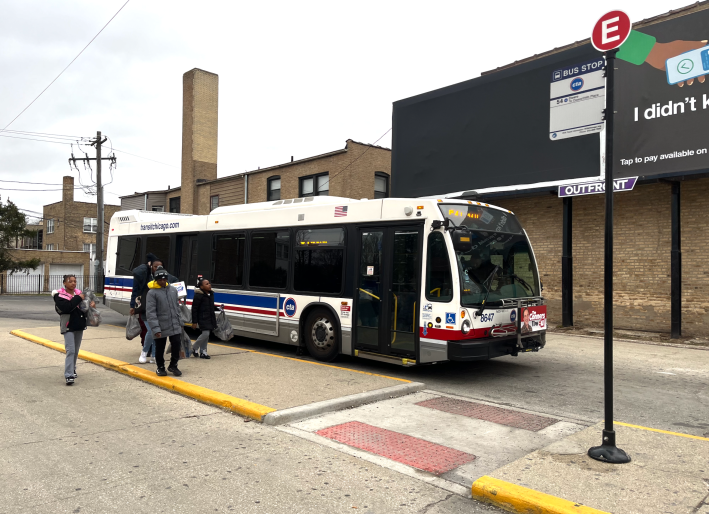
"This work is especially critical at this time, when legislators are making impactful decisions about investing in CTA for years to come," she added. "I am fully engaged with Springfield lawmakers and having productive discussions with them as they consider our agency's financial future."
DePaul's Chaddick Institute Director Joe Schwieterman provided a non-agency response to the Tribune piece, arguing that it was way too glass-half-empty. "Reform of transit governance will be required for large-scale funding to come from Springfield, and even then, painful decisions must be made, but the editorial paints an overly negative picture of the state of our transit system," he said. "There is value in shining a spotlight on our problems, but the piece doesn't outline much of a path forward, except to 'say no' to fiscal-cliff funding requests, which could cripple our system. Our transit system needs a 'jolt,' but letting the doomsday scenarios come to fruition will make any 'fix' even more difficult than it is today."
Agreed. Streetsblog Chicago is just as inclined as the next transit commentator to call out the agencies for bad management, policies, and service. But the Tribune editorial board claiming that they're crying wolf is totally counterproductive, assuming that our main goal is to prevent the impending bus-and-rail-carmageddon.
Read the Tribune editorial here.
Read RTA Board Chair Kirk Dillard's response here.

Did you appreciate this post? Streetsblog Chicago is currently fundraising to help cover our 2025-26 budget. If you appreciate our reporting and advocacy on local sustainable transportation issues, please consider making a tax-deductible donation here. Thank you!
